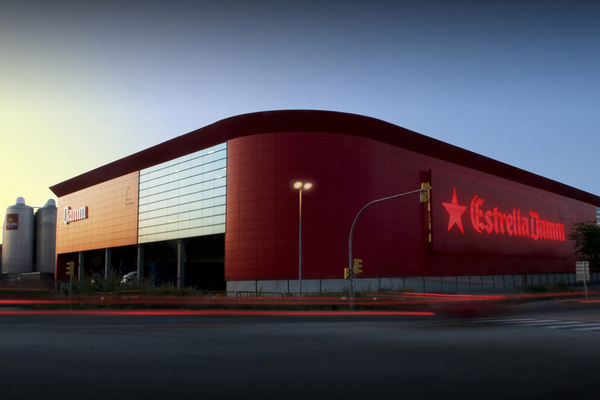Damm, the first beverage producer worldwide to achieve ASI certification

The Aluminium Stewardship Initiative (ASI) scheme guarantees high environmental, ethical and social standards for the whole life cycle of the beer company’s drinks cans
Damm has achieved ASI (Aluminium Stewardship Initiative) Performance Standard and Chain of Custody Standard certification. Damm becomes the first drinks beverage company in the world to achieve double certification, which guarantees high environmental, ethical and social standards for the whole aluminium chain, from the production of the aluminium to making the cans, brewing and recycling.
From this March onwards, all Damm’s cans, which are supplied by Ball Corporation, will be certified according to ASI’s Standards for responsible production, sourcing and stewardship. The certification covers packaging and storage of beer in cans, as well as related activities including design, packaging and storage of finished products, waste management and storage, and the recovery of waste, including end consumer’s packaging waste.
As part of the Performance Standard certification, Damm’s life cycle thinking, product design, emissions reduction plans and management of natural resources and waste in its breweries were audited. The Chain of Custody certification covers verified practices – certified under the ASI Performance Standard – from mining and remelting to aluminium casting, rolling, can manufacturing and filling.
The ASI certification also acknowledges Damm’s work in raising awareness of aluminium recycling, through the 349 can compactors it places every year along the Mediterranean coast. As well as this pioneering initiative in the drinks sector, the company partners organisations that promote responsibility among producers and recycling.
About ASI
The ASI was founded over 10 years ago by representatives from the aluminium industry and industrial users of aluminium, and from research and policy organisations and society in general, with the aim of promoting greater sustainability and transparency throughout the aluminium industry. Since 2017, organizations have been able to seek ASI certification and more than 160 organisations have joined the ASI as members, demonstrating their commitment to responsible aluminium sourcing.
Damm’s continued commitment to sustainability
Commitment to caring for the environment forms part of Damm's corporate culture and is one of the main strategic pillars of the company, whose executive chairman is Demetrio Carceller Arce. This was confirmed by the chief executive at the last General Shareholders' Meeting, where accelerating the company's environmental agenda to continue being the most sustainable beer company was identified as a priority.
To minimise its impact on the planet, Damm has programmes aimed at the continuous improvement of industrial processes that use less raw and other materials, as well as initiatives to promote energy efficiency in all production centres and circular economy actions.
The company encourages ecological packaging design, reducing the total amount of materials used while constantly increasing the percentage of recycled raw materials, and improving recyclability. As of the 1st of December 2020, all Estrella Damm can multipack holders are made with 100% biodegradable cardboard; plastic rings have been eliminated. This was a pioneering project in the brewing industry that will mean a reduction in the use of over 260 tonnes of plastic per year, the equivalent of almost 89 million plastic rings. The suppliers that manufacture the cardboard for the packs are PEFC and FSC certified, guaranteeing that all the cardboard and paper used comes from responsibly and sustainably managed forests, thereby helping to combat climate change and protect biodiversity.
Damm has also eliminated printed plastic shrink wrap from six, twelve and twenty-four packs of Estrella Damm cans, which will mean a reduction of 99 tonnes of plastic per year. The plastic has been replaced by new cardboard packaging made with natural fibres from trees from sustainably managed forests with PEFC certification.


